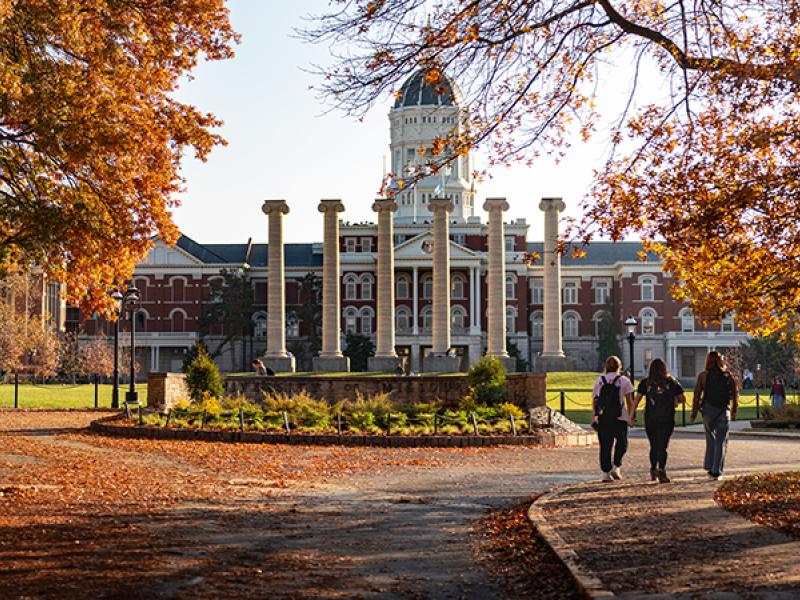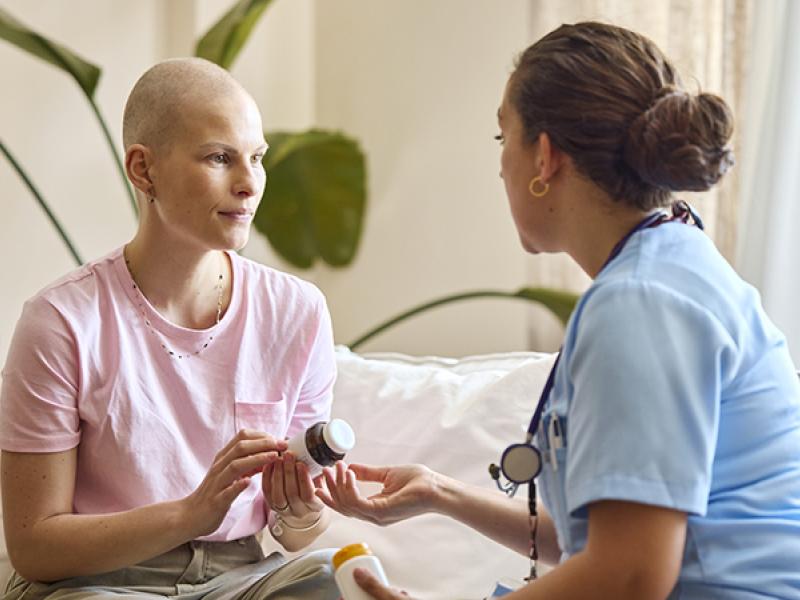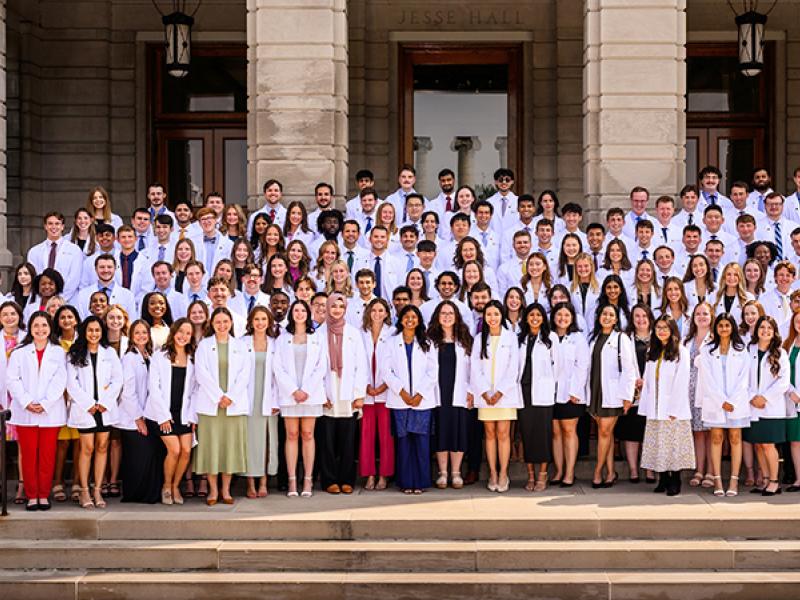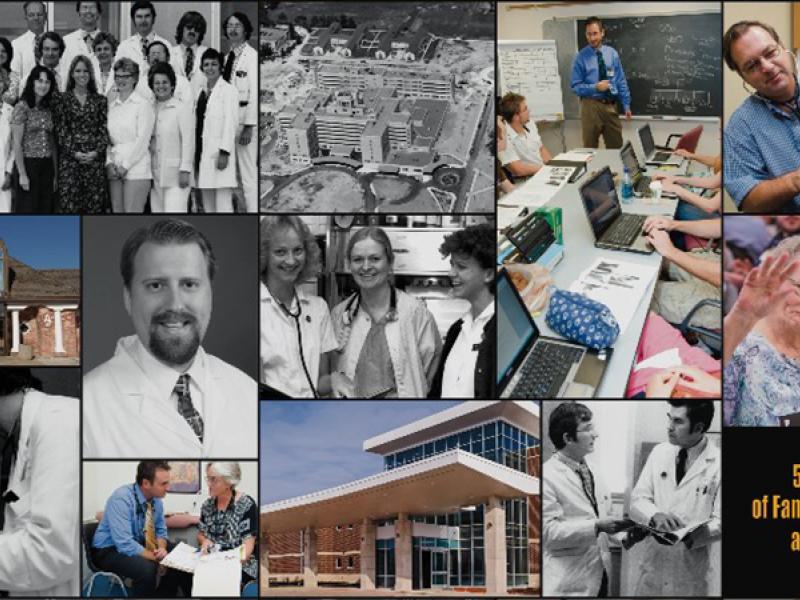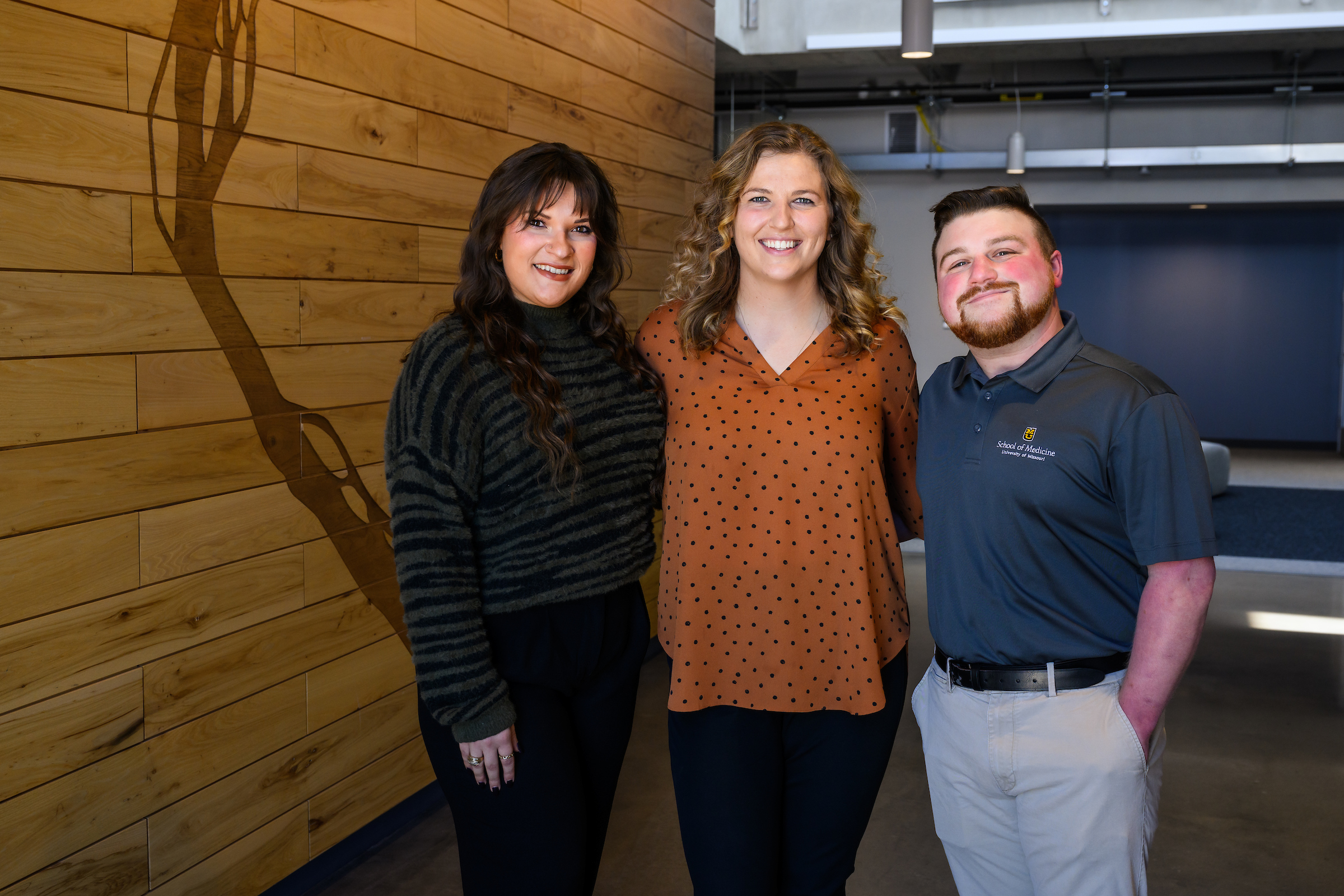
The MU School of Medicine Class of 2024 will soon walk across the stage at graduation, a symbol of how far they’ve come in their medical careers and education. But they’re only just beginning.
Most of these graduates will begin orientation for residency soon, though the exact date depends on the program. For Katelyn Weith, Brooke Wiewel and Andruw Wittels, they will officially start their residency July 1 at the Fulton Family Health Clinic. All three students are part of the family medicine integrated residency program and happen to be great friends.
“I've known Andruw and Brooke all through medical school, and they both have similar backgrounds to me from smaller towns,” Weith said. “We've gotten pretty close -- I'm really excited to be working with them in Fulton.”
Learn more about the trio.
Katelyn Weith: A family in medicine
Katelyn Weith’s been around health care for as long as she can remember. Her mom works in medical imaging and her aunt is a nurse, but not in Weith’s hometown of Wardsville, Missouri. Both currently commute about 20 minutes to Jefferson City.
It’s not a lengthy drive, but Weith’s met people who haven’t seen a specialist in years because of the distance. Her grandfather, for example, had to travel more than two hours to see a cardiologist for heart problems. Her experiences from growing up and working in rural clinics affirmed her choice to go into rural medicine.
“Those primary care offices end up being a one-stop shop for anything a patient might need, and those doctors are really well-rounded physicians,” Weith said.
Part of what drew Weith to family medicine was the ability to develop a wide base of knowledge and skills, across multiple medical fields, to provide preventative care. It’s what’s needed to serve patients in rural communities, and to be that one-stop shop Weith wants.
Another reason was the friendships she saw curated between a patient and physician, and hopes she’ll be able to ‘do her part’ in connecting rural areas to long-term, primary care.
“I want to be with patients throughout their health care journey,” Weith said. “I didn't want to see just a small snapshot of what's going on with them. I want to work alongside them and walk them through the health care process.”
Brooke Wiewel: An emergent spark
Similar to Weith, Brooke Wiewel was also exposed to healthcare at a young age, though not in the same way. When she was 12, her older sister had a traumatic accident and needed lifesaving surgery.
“After that, it just really opened my eyes to how incredible the human body is, with how she was still able to survive and function after all of the organ damage, and how the surgeons were able to save her,” Wiewel said.
Watching her sister survive and later make a full recovery sparked her interest in becoming a doctor. Wiewel was initially drawn to emergency medicine, and even worked as an EMT during college and at the former MU Women and Children’s Hospital Emergency Room. It was her experiences in the ER, though, that ultimately led her to family medicine.
“You often see a lot of patients with chronic medical conditions and people who come into the emergency room with things that could have been addressed or prevented if they had adequate preventative and primary care,” Wiewel said.
Doing rural family medicine would let her provide that preventative care. Plus, the location meant she could do obstetrics, see pediatric patients and even do emergency medicine, when cases presented themselves – fields she still wants to pursue. She looks forward to learning more in her coming residency.
“I just am really grateful and excited to be continuing residency here at Mizzou, because Mizzou Family Medicine is what ultimately solidified my passion for family medicine and my passion for rural health care,” Wiewel said. “I can't think of a better place to be able to continue along with some of my classmates, who I really admire.”
Andruw Wittels: An answered call
Unlike his two friends, Andruw Wittels never dreamed of being a doctor. If it wasn’t for his high school anatomy class, which required shadowing a physician, his life would look very different.
“I had no idea that somebody from where I grew up or how I grew up could go into medicine,” Wittels said. “Where I went to high school, the biggest thing that they pushed was trade school, as well as just entering the workforce in general. There was really no mention at all about pursuing medicine. And I don't think, if it wasn’t for that class, I would've never thought about doing medicine in the first place.”
Wittels grew up near Osage Beach and knows what it was like to rely on one person for your medical needs. As he learned more about medically underserved areas and the physician shortage, he couldn’t just sit idle while knowing he could help.
It’s one reason Wittels went into family medicine, but he also enjoys providing intergenerational care and challenging himself with the ever-changing nature of a rural clinic.
“Anything can walk through the door in a family medicine clinic,” Wittels said. “You could have a toenail removal, then an IUD insertion and then you could talk to somebody about their diabetes.”
As Wittels and his friends prepare for the next phase of their medical journey, one word describes them all – they’re ready.
“This feels like it’s something that I was meant to do,” Wittels said.


